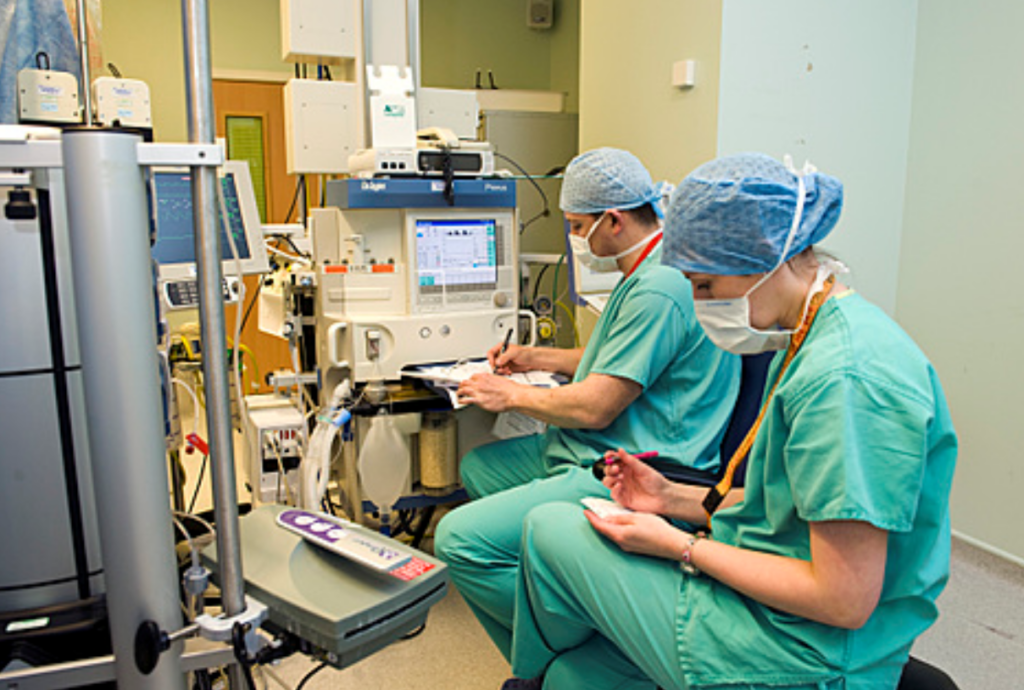Improving Multi-morbidity Acute Care Using Data Analytics
Background Summary
The Multi-morbidity challenge is in response to the need to improve the care for the increasing numbers of patients with multi-morbidities who are presenting at emergency departments.
The innovation opportunity offers the ability to better utilise existing data to then support improved clinical decision making for each patient during their time in the hospital setting.
Challenge Objectives
- To create the ability whereby patient healthcare information from multiple sources can feed into one ‘live system’ that will then interpret this information.
- Embed real time multi-morbidity recognition on admission to the emergency department into the ‘live system’ as well as any risks that their combination of morbidities poses.
- This will then lead to decision-aid tools and automated care plans that take these risks into consideration and thus improves safety and quality of care for the patients.
Clinical Lead for the Challenge
The Clinical Lead for this innovation challenge is Dr Naz Lone, Clinical Senior Lecturer in Critical Care and a member of the Usher Institute at the University of Edinburgh, in collaboration with a multidisciplinary group of clinicians, health service managers, researchers, and academics with an interest in multi-morbidity and acute care.
Delivery Partners
Health Innovation South East Scotland (HISES), NHS Lothian, University of Edinburgh, The DataLoch and The Data Lab.
Phase 1 challenge solvers:
- MediprospectsAI Ltd
- Red Star AI Ltd
- Mediconnect Research Ltd
- Lightweight Integration Ltd
Phase 2 challenge solvers:
The presence of comorbidities can significantly impact a patient’s treatment options. Establishing a comprehensive understanding of a patient’s medical history can be complex and time-consuming, and overwhelmed emergency departments are under pressure to improve performance. Red Star is solving this problem by aggregating data from multiple sources and transforming it into a real-time, user-friendly summary of a patient’s comorbidities. In addition to identifying comorbidities, Red Star will summarise investigations, medications, and the frequency, duration, and severity of admissions related to each comorbidity.
Outputs expected
Phase 1
- To deliver an innovative solution that will provide enhanced real time personalised decision support capability for patients with multi-morbidities.
- To collaborate on developing decision support digital models that will enable real-time multi-morbidity recognition in people attending emergency departments and acute admission units in the East Region.
- To establish a multi-morbidity data platform within the Lothian DataLoch to support healthcare Data Driven Innovation Challenges (in support of the East Region City Deal).
Phase 2
- To develop automated mechanisms for identifying multimorbidity in patients admitted to emergency departments using clinical data from varied sources in collaboration with clinical and academic partners
- To develop algorithms to risk stratify individuals who are at risk of adverse outcomes including death or hospital readmission
- To develop end-user tools that permit real-time visualisation of data and risk stratification to support personalised clinical decision making
- To develop a business proposal for how this solution could be procured by the NHS
Strategic Priority Area
- Improve healthy living and well-being.
- Deliver proactive care.
- To improve the provision of integrated unplanned care.
SBRI Key Dates
Phase 1
- Competition published via Innovate UK: 7th December 2020
- Competition opens: 4th January 2021
- Applicant briefing event: 18th January 2021
- Competition closes: 3rd March 2021 at 11 am
- Phase 1 start date: 5th May 2021
- Phase 1 end date: 4th August 2021
Phase 2
- Phase 2 invitation to tender opens: 12th June 2023
- Phase 2 application closes: 14th July 2023
- Phase 2 start date: 2nd October 2023
- Phase 2 end date: 30th June 2024
Funding Partners
This is a Small Business Research Initiative (SBRI) competition funded by the Chief Scientists Office (CSO) in Scottish Government and hosted by Health Innovation South East Scotland.

